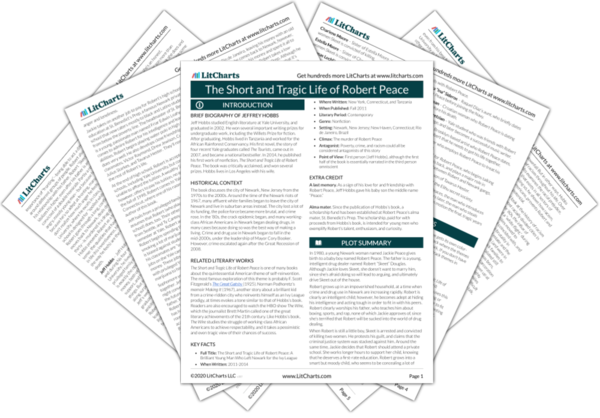Previous
Chapter 2
|
Previous
Chapter 2
|
The Short and Tragic Life of Robert Peace: Chapter 3 Summary & Analysis |
Next
Chapter 4
|


Upgrade to unlock the analysis and theme tracking for all of The Short and Tragic Life of Robert PeaceThe Short and Tragic Life of Robert Peace!
Get LitCharts A+